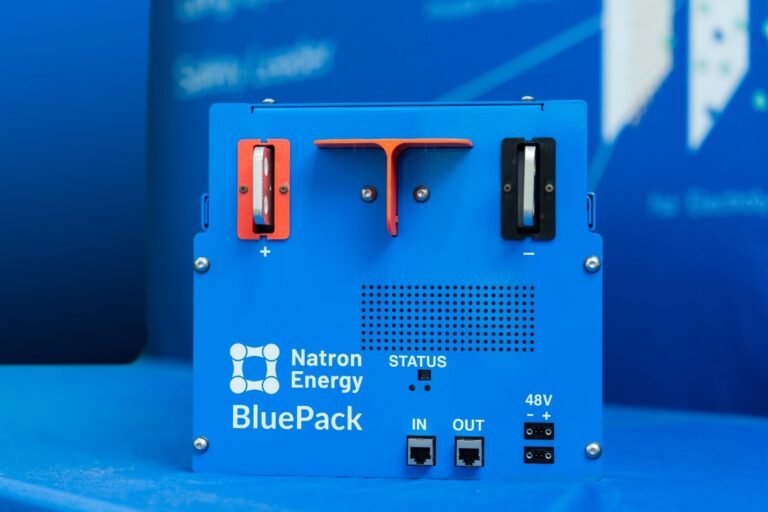Sodium-ion battery startup Natron ceased operations this week, ending the company’s 12-year quest to commercialize its technology in the U.S.
The company had $25 million worth of orders lined up for its Michigan factory, but it couldn’t deliver them until it had UL certification, according to Raleigh’s The News & Observer, which reported on the business’s closure because Natron had been planning to bring jobs to the state of North Carolina with its new factory.
However, receiving the UL certification can be a lengthy process, often spanning several months. Natron investors balked at releasing more funds, leaving the startup facing a cash crunch.
Natron’s primary shareholder, Sherwood Partners, attempted to sell its stake but found no buyers. As a result, it’s liquidating the company and laying off all but a small number of employees, who will oversee the wind-down of operations.
The closure is an example of the challenges that come with trying to manufacture batteries without consistent industrial policies. The road from startup to gigafactory often takes a decade or more — a journey that lasts longer than most business cycles — and certainly longer than most investor fads.
Natron is being carved up through a process known as “assignment for the benefit of creditors,” an alternative to Chapter 7 bankruptcy that could result in a speedy — and quiet — sale of assets that forgoes the court proceedings that many liquidations follow.
The company had announced a year ago that it would build a much larger, $1.4 billion sodium-ion battery factory in North Carolina capable of producing gigawatt-hours’ worth of cells per year, creating as many as 1,000 jobs. Natron had focused on stationary storage and data center customers, markets where sodium ion’s lower energy density isn’t as much of a concern.
While sodium-ion batteries have the potential to be significantly cheaper than their lithium-ion competitors owing to sodium’s abundance, their potential has been undercut by a lithium price war in China. In the last two and a half years, the price of lithium carbonate has cratered, dropping 90%, according to Benchmark Mineral Intelligence.
Natron is only the latest casualty in a string of recent attempts to manufacture large quantities of batteries outside of Asia.
In June, Oregon-based Powin filed for Chapter 11 bankruptcy as it failed to find a non-Chinese supplier of lithium-iron-phosphate cells. The company used the cells to assemble grid-scale batteries.
Earlier this year, Swedish battery manufacturer Northvolt also filed for bankruptcy in its home country, ending the journey for Europe’s best chance at a homegrown competitor. The company was reportedly burning through $100 million a month as it struggled to master large-scale manufacturing. BMW canceled a $2 billion contract in June 2024 because of Northvolt’s inability to deliver.
The string of failures highlights the difficulty of building battery companies outside Asia, which has, over the decades, developed both mature supply chains and companies with vast expertise.
If the U.S. or Europe is to succeed in creating domestic challengers to the Asian battery giants, it’ll take sustained government support for a decade or more, not the whipsawing that has defined the last 15 years. Given political realities, joint ventures with companies like Panasonic, LG Energy Solution, and SK Innovation are more likely to succeed.
For the foreseeable future, the West’s best chance at domestic battery manufacturing still runs through Asia.




